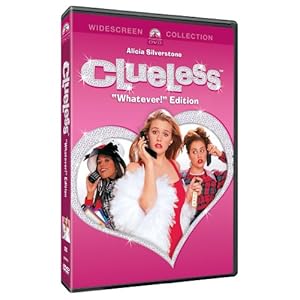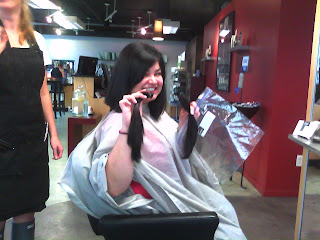I finally finished Emma and I have to say that in the end, despite my dubiousness and reluctance, she won me over, as she must have so many others. Her serious, honest, and rather unflinching reflection and personal reform reached me as her so-called charity and charms could not. And, I admit, like so many others, I have a decided soft-spot for Jane Austen’s leading men. Mr. Darcy is, of course, my favorite, but Mr. George Knightley runs a very close second (particularly if I envision him as he was portrayed by Jeremy Northam, though I am eager to see Jonny Lee Miller’s version of Mr. Knightley as he cut quite a fine figure as Edmund Bertram in the film version of Mansfield Park).
 |
| He's just swoon-worthy as the stern but affectionate (and oh- so-correct) Mr. Knightley... |
As I said in my earlier posts, I didn’t like Emma for the majority of the novel. This doesn’t mean, however, that I disliked the novel as a whole; in fact, the language was beautiful and Austen did an accurate job creating a small, rural community with its quirks and its charming characters. But I was overwhelmingly repelled by Emma herself, as Austen intended us to be. When she created Emma, Austen created a character that no one but she herself would truly like. I so disliked Emma as a character that I found it hard to invest myself entirely in the novel, unlike my experiences with previous novels. In the last quarter of the novel, though, Emma reforms. In a moment of childish insensitivity, she insults an old friend and, upon receiving harsh criticism from Mr. Knightley, examines her actions and attitudes and vows to change. After she reforms Emma becomes a likeable character. Her honest reflection forces her to admit her own shortcomings and petty actions and she begins to redeem herself.
Up to this point in the novel, I found myself preferring the various film adaptations of the story because Emma was more likeable and the story flowed better; after her reform, though, the entire novel gets better than any film adaptation. Emma finally moves beyond her petty jealousy of Jane Fairfax and the two form a friendship, a relationship upon which none of the adaptations elaborate. Jane Fairfax on the whole becomes a much better developed character on the page than she does as a living, breathing human being on screen. Furthermore, the reader gets a better explanation and justification of Frank Churchill’s actions than the films offer. Frank was a character whom, like Emma, I found it hard to like; ultimately, though, he drops his artifice to reveal his true character. By embracing his faults and seeking redemption from those he loves, Frank becomes a better man and a much more likeable character. I appreciated this effort by Austen, and I found the climax and denouement much more gratifying than the previous three-quarters of the novel.
 |
| I'd say I wonder what Emma would be like were she to live in the present, but I honestly think she would be something very close to Clueless' Cher |
While I appreciated the other characters and the caricatures of English society they represented, in the end I am most intrigued by Emma as a character. Throughout most of the novel, Emma’s one redeeming quality is her loyalty to those she loves, particularly her ever-suffering father. The unwavering attention to Mr. Woodhouse’s pains and worries would be a credit to any person, but particularly to the spoiled and self-centered Emma. Emma is so devoted to her father’s care that she decides herself against marriage because it would take her away from her father’s house and would cause him daily distress.
More than Emma’s loyalty to her father, though, I find her attitude towards her station in life fascinating. Unlike the Bennett sisters of Pride & Prejudice, Emma does not need to marry to secure her station in life. She flirts with the idea of falling in love with Frank Churchill, but it is more from a childish desire for romance and intrigue than a genuine desire for love and comfort in the future. Emma did not feel the same pressures that Austen’s other female characters would have encountered. This level of comfort, in fact, is what defines Emma is crucial aspects because it allows her to spend her days in relative ease and, because she did not paint or sing or play music particularly well, Emma constantly finds herself bored. She tries to compensate for this by involving herself with charity work, visiting the less fortunate families in the neighborhood, but charity work can only distract one so far. This boredom is what induces Emma to take an interest in Harriet Smith. Austen refers to this boredom offhand, referring to Emma’s moods being dictated by inclement weather and her restlessness at being cooped up inside, clearly not intending for this to be a dominant facet of the story. Emma would have been a much different character, though, had she been born in a different class or as part of a later generation. Had she been born to a lower class, Emma’s time would have been consumed with housekeeping, or working to better herself so that she could become a governess. Had she been born a few generations later, she could have become an educated Bluestocking or a suffragette or other reformer and doer of good deeds. But as she was born into the gentry during the reign of King George III, she was doomed to a life of constantly visiting the same few families and bestowing her attentions on those she deems worthy.

